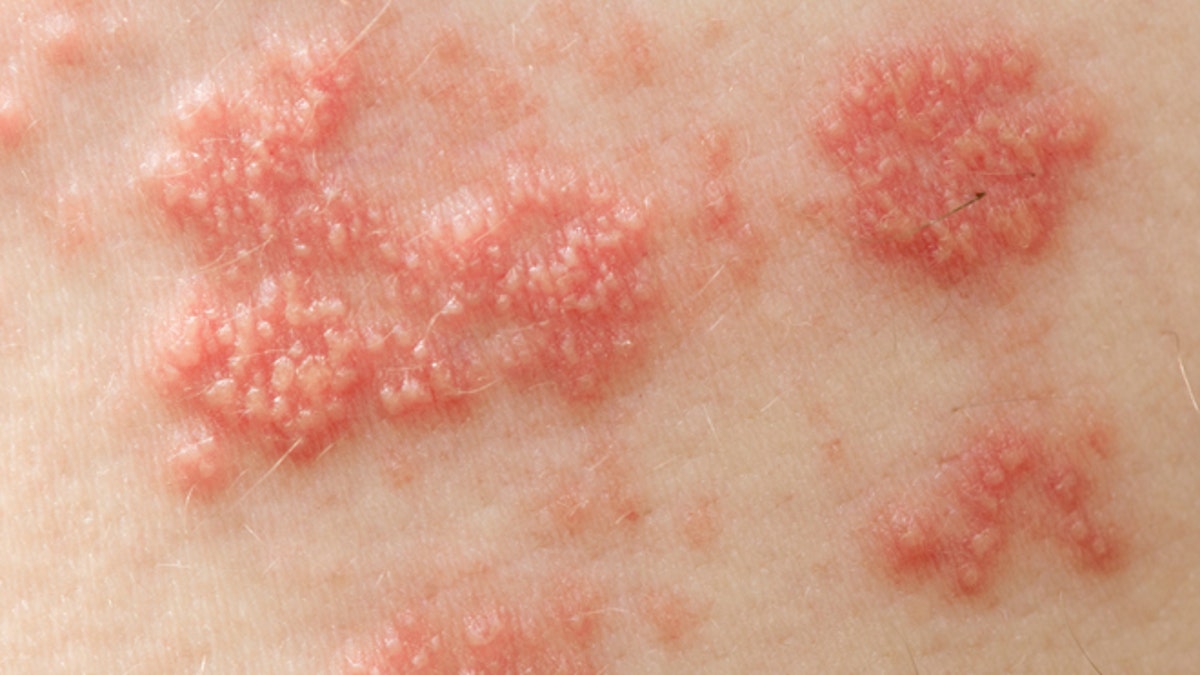
As the flu epidemic winds down, there is one vaccine that more and more people will soon need to get, regardless of the weather – the shingles vaccine.
More and more baby boomers born in the 50s and 60s are starting to become eligible for the shingles vaccine, and many should not skip it, as the majority of them probably had chicken pox in their youth. Shingles – a condition characterized by painful skin rashes – is caused by the varicella-zoster virus, the same virus responsible for causing chicken pox.
“The virus stays dormant in your body for 40, 50, 60 years, and comes out in a narrow band of rash,” Dr. Keith Armitage, department vice president for education and infectious disease expert for UH Case Medical Center in Cleveland, Ohio, told FoxNews.com. “The real problem with shingles isn’t the acute event. An episode of shingles can lead to permanent pain.”
'Severe side effects'
While shingles can be relatively mild, some cases of shingles can have fairly severe side effects. According to Armitage, the condition is sometimes associated with transient neurologic deficits when shingles leads to a bacterial superinfection. The skin disease can also cause skin ulcers and become a portal for bacteria like strep and staph.
On extremely debilitating side effect includes post-herpetic neuralgia – a very long-lasting pain syndrome that essentially never goes away. Persisting pain can be fairly common with shingles, which is why so many doctors recommend people to be vaccinated when they reach their 50s.
“Baby boomers are entering the age when they should get the shingles vaccine,” Armitage added, “and the number of patients for whom the vaccine is indicated will go up in the next few years.”
According to the National Vaccine Information Center, the shingles vaccines is about 51 percent effective. Even with such a relatively small efficacy, doctors still recommend everyone get the shot.
“A decade ago, there was a randomized trial of older adults given the shingles vaccine,” Armitage said. “It didn’t prevent all shingles cases, but it prevented a lot of cases, and for the people who did get shingles, they experienced far less pain.”
The shingles vaccine is necessary for so many baby boomers (and some generations after), because it was common practice to purposefully make children contract chicken pox. If one child had it, it was not unheard of for parents to put all their children together so that brothers and sisters would contract the virus as well. That way the children could get it over with and never have it again – because chicken pox in adulthood is far worse.
Chicken pox – characterized by itchy bumps and rashes covering a person’s skin – is more likely to cause complications when contracted in adulthood. While it is typically very rare to have chicken pox as an adult, those who do get the disease when they’re older account for disproportionately more deaths and hospitalizations from the disease. Adults with chicken pox have an increased chance of seeing complications such as pneumonia, bone infections and even toxic shock syndrome.
While many parents used to hope their child would contract chicken pox, the current generation of parents have entered a new era. A chicken pox vaccine was introduced in 1995, and many of the children growing up today will forgo getting the virus for getting an immunization shot instead.
“One of the complications of chicken pox is a bacterial superinfection,” Armitage said. “It allows for group A strep, which can cause necrotizing fasciitis – better known as ‘flesh-eating bacteria.’ People debated whether it was better to give kids the chicken pox vaccine, which was associated with uncertainty as to what would happen to them during adulthood. But 10 or 15 years ago, a few cases of bacterial super-infection were the real tipping point for giving kids the vaccine. So now there’s a whole generation of children who are in high school and college who got the vaccine, and there’s some uncertainty about when they’ll need to be boosted.”
Armitage noted the medical community is still uncertain as to what kind of treatment kids who received the chicken pox vaccine will need as they grow older.
For now, there are two groups of people – an ever-increasing number of middle-aged adults who had chicken pox as children and are in need of the shingles vaccine, and a group of younger adults who may or may not need to be re-boosted for chicken pox in the next decade.
“It’s an interesting illness in that you get this virus, you get chicken pox and you recover, but it stays dormant,” Armitage said of the bizarre disease. “Even though you have immunity, it comes back in a very different form causing a band of infection in one side of your body. If this illness didn’t exist and someone made it up, no one would believe it was real.”








































